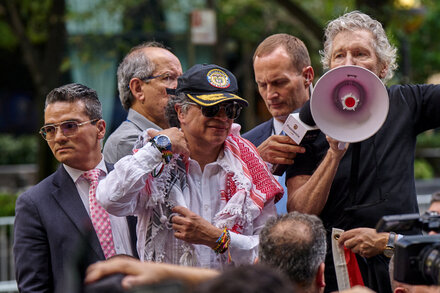MEXICO CITY – The colloquial term “huachicol,” which describes the illicit practice of fuel theft in Mexico, has officially been recognized and incorporated into the latest update of the lexicon, marking a significant moment for Mexican Spanish. Its inclusion reflects the profound impact of social phenomena on the evolution of language.
“Huachicol”: A Term Born of Crisis
The word “huachicol” refers to the siphoning and illegal sale of gasoline and other petroleum products, a practice that has plagued Mexico for years. Originating from obscure roots, possibly linked to older slang for adulterated or low-quality alcohol, the term has become synonymous with a massive illegal industry that costs the state billions annually and has led to widespread violence and corruption.
Its pervasive use across all strata of Mexican society, from news reports to casual conversation, underscored the necessity of its formal recognition. Lexicographers often consider the frequency and widespread acceptance of a term as primary criteria for inclusion in dictionaries.
“The adoption of ‘huachicol’ into the dictionary is a testament to its pervasive presence in the daily lexicon of Mexicans,” stated Dr. Elena Rojas, a prominent lexicographer with the Academia Mexicana de la Lengua. “It’s a word that encapsulates a complex social and economic reality, and its recognition is a natural reflection of linguistic evolution.”
New Words Reflecting a Dynamic Language
The inclusion of “huachicol” is part of a broader trend recognizing the dynamic nature of Mexican Spanish. Beyond this specific term, the recent dictionary updates feature a variety of other new words and phrases that illustrate the vibrant and ever-changing landscape of the language. These additions often capture nuances of local culture, new technologies, or emerging social trends, enriching the official record of the language.
Linguists emphasize that such inclusions are not merely academic exercises but vital acknowledgments of how people truly speak and understand their world.
Professor Miguel Hernández, a socio-linguist at the National Autonomous University of Mexico, remarked, “Words like ‘huachicol’ don’t just appear; they emerge from necessity, from the need to name new realities. Their formal inclusion validates not only the word but also the experience of the people who use it daily, solidifying a piece of contemporary Mexican history within our language.”
The formal recognition of “huachicol” and other Mexicanisms by linguistic authorities underlines the capacity of language to absorb and reflect the most pressing issues of a society, offering a linguistic mirror to the nation’s ongoing challenges and cultural richness.
Source: Read the original article here.





